Conference Report (Printable PDF Summary)
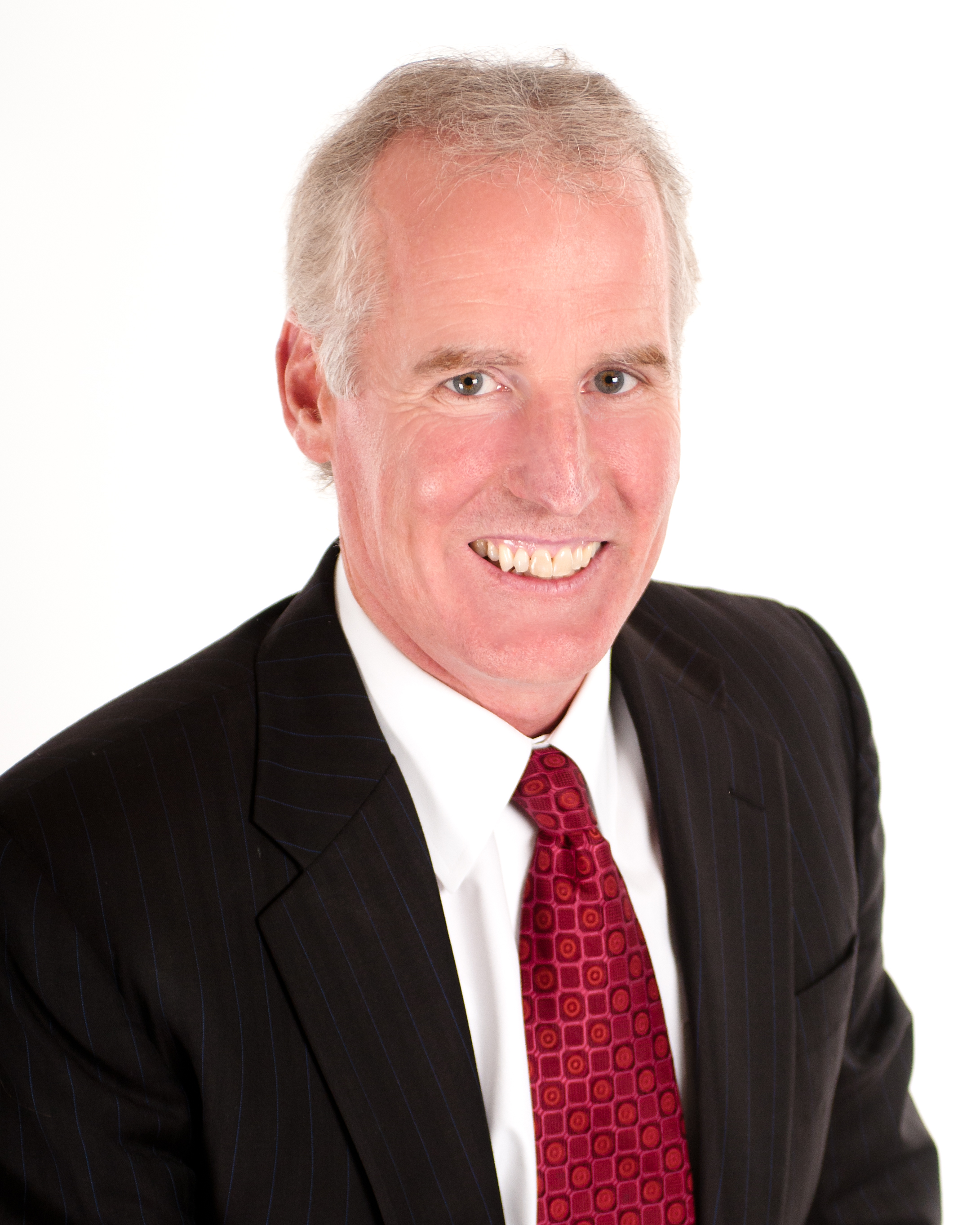
Welcome–Kirt Montague, CEO, Plum Energy, and Chair of the Board, Washington Clean Technology Alliance.
What are the New Politics in America? Featuring former U.S. Senator Slade Gorton (R-WA) and former Seattle Mayor Greg Nickels.
- Slade Gorton served three terms as a United States Senator (R-WA). His dedication to public service began in 1959 when he was elected to the Washington State House of Representatives where he served for ten years including the last two as Majority Leader. In 1969, Slade was sworn in as the state’s Attorney General, a post he would hold for three terms. Gorton argued fourteen cases before the United States Supreme Court, prompting Chief Justice Warren Burger to comment: “[Slade Gorton] makes the best arguments before the Supreme Court of any Attorney General in America.” Slade’s most popular achievement as Attorney General was a successful suit against the American League in 1979 to keep major league baseball in Seattle.
- During a lifetime of Public Service Greg Nickels has served as a Mayor of Seattle, President of the United States Conference of Mayors, King County Councilman, Delegate to the United Nations and Harvard Fellow. Greg Nickels served 8 years as Seattle’s 51st Mayor from 2002 through 2009. In 2010, Nickels was nominated to be a Public Delegate to the Sixty-fifth Session of the General Assembly of the United Nations. Holding the rank of Ambassador, Public Delegates serve for a one-year term. In 2009 the United States Conference of Mayors elected Greg Nickels their 67th President. He is the recipient of numerous national and local awards for his work. Currently Nickels serves on the Board of Trustees for Seattle based non-profits HistoryLink, Transportation Choices Coalition, Forterra, and Vermont-based NGO Institute for Sustainable Communities. He is also on the Advisory Board for Blue Marble Biomaterials, a start-up company. He is one of the founders of Step Up Mobile.
Mayor Nickels and Senator Gorton discussed a wide range of issues facing the nation. While they agreed on many items, Senator Gorton was much more concerned about the impact of the national debt on the nation’s economy. The Mayor and Senator disagreed in their opinion about the President: The Mayor believes the President governs from the center and the Senator believes the President is more extreme.
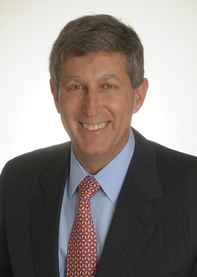
The Role of Clean Energy in the Global Economy: The Next Four Years, address by Ken Berlin. Ken Berlin is currently Executive Vice President, Policy & Planning and General Counsel of the Coalition for Green Capital. The Coalition for Green Capital is the leading group trying to establish Investment Trusts to provide low cost financing for clean energy and energy efficiency projects on the state, national and international levels. Ken is the former head of the Environmental and Climate Change Practices of Skadden, Arps, Slate, Meagher & Flom (from 1994-October 2010). He graduated from Columbia Law School in 1973. Ken has been involved in a wide range of environmental and energy issues since 1979, when he was Section Chief in the Environment and Natural Resources Division of the U.S. Department of Justice. He was Chairman of the Board of the Environmental Law Institute from 2003-2005 and Chairman of the Board of the Center for International Environmental Law from 2009-2012. Ken was also former Chairman of the Board of the American Bird Conservancy and the RARE Center for Tropical Conservation.
- Find the text of Mr. Berlin’s address here.
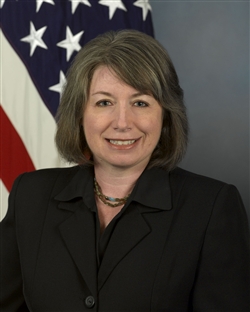
The Role for the U.S. Military in Clean Energy by The Hon. Sharon E. Burke. Sharon E. Burke was appointed as Assistant Secretary of Defense for Operational Energy Plans and Programs (OEPP) in June 2010. OEPP works with the military services and combatant commands to improve military capabilities, cut costs, and lower operational and strategic risk through better energy accounting, planning, management, and innovation. Prior to her appointment, she was a Vice President and Senior Fellow at the Center for a New American Security (CNAS), where she initiated the Natural Security Program, which looked at the national security implications of global natural resources challenges. She served as a member of the Policy Planning Staff at the Department of State, a Country Director in the Department of Defense’s Office of Near Eastern and South Asian Affairs, and as a speechwriter to Deputy Secretary of State Richard Armitage and Secretary of Defense William Cohen. She graduated from Williams College and Columbia University’s School of International and Public Affairs, where she focused on international energy policy and earned a Certificate of Middle Eastern Studies.
- Find Secretary Burke’s slide presentation here.
- Find Bellamy Palithrop’s KPLU story, “Cleantech Boosters Looking to Military for Leg Up,” here.
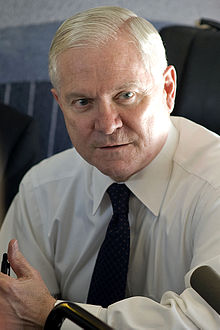
Luncheon Keynote: The Hon. Robert M. Gates, Former Secretary of Defense
Robert Gates is a retired civil servant and university president who served as Secretary of Defense from 2006 to 2011. Secretary Gates served for 26 years in the CIA and the National Security Council, and, under President George H. W. Bush, as Director of Central Intelligence. Secretary Gates was also an officer in the USAF. After leaving the CIA, he became president of Texas A&M.
Secretary Gates accepted the nomination for Secretary of Defense in 2006 and was confirmed with bipartisan support. In 2007, Time named him one of the year’s most influential people. In 2008, he was named one of America’s Best Leaders by U.S. News & World Report. He continued to serve as Secretary of Defense in President Obama’s first administration. Secretary Gates retired in 2011 and was presented the Presidential Medal of Freedom, the nation’s highest civilian award, by President Obama. Secretary Gates is now Chancellor of The College of William and Mary.
- Ben Romano of Xconomy wrote a story on the Secretary’s speech, “Defense Secretary Gates: Underfund Basic Research at America’s Peril,” on January 29, 2013, which can be found here.
- Thanks to APCO Worldwide for arranging the Secretary’s appearance.
Panel Discussion: Energy and National Security
- Chad T. Marriott, Moderator is an attorney at Stoel Rives LLP, where he is an active member of the firm’s Energy Development team. Chad’s clients include owners, investors, and developers (including independent power producers and electric utilities) engaged in both the renewable and thermal energy sectors. In addition to his recent work on behalf of clients responding to the Army’s $7 billion Multiple Award Task Order Contracts (MATOC) solicitation, Chad provides counsel on a variety of matters related to state and federal utility regulation, project development, M&A, and project finance. Chad has experience drafting and negotiating a wide range of instruments including teaming agreements, PPAs, and joint development agreements, and has conducted due diligence for wind, solar, and transmission projects throughout the West. Chad is currently a board member of the Ocean Renewable Energy Coalition (“OREC”), the national trade association for the marine and hydrokinetics industry, and has served as a vice chair for the Hydro Power Committee of the American Bar Association’s Section on Environment, Energy, and Resources.
- The Hon. Adam Smith, U.S. House of Representatives (D-WA-09), Ranking Member, U.S. House Armed Services Committee. Now in his 8th term, Adam serves as Ranking Member of the House Armed Services Committee, where he is a strong advocate for our military personnel and their families. Adam is also committed to providing our military personnel with the best equipment available to carry out their current and future missions while ensuring that the Pentagon spends taxpayer dollars in the most efficient and effective manner. This includes carefully examining our current policies and working to eliminate fraud, waste, and abuse. Having served on the on the House Armed Services Committee since 1997, Adam formerly chaired the subcommittee on Air and Land Forces (ALF), which has jurisdiction over all Army and nearly all Air Force acquisition programs. Prior to serving as Chair of ALF, Adam chaired the Terrorism, Unconventional Threats and Capabilities subcommittee, which oversees the United States Special Operations Forces and counter-terrorism policy, among other critical areas. Adam has also previously served on the House Foreign Affairs Committee and the House Permanent Select Committee on Intelligence.
- U.S. Army Major General Jeff Buchanan is the Deputy Commanding General, I Corps, Joint Base Lewis-McChord, Washington. He served four tours of duty in Iraq. From 2003-04, he was the Director of Operations, Coalition Military Assistance Training Team, organizing the New Iraqi Armed Forces. From 2004-06, he commanded the 2nd Brigade, 75th Division in Iraq advising the Iraqi Special Police Commando Division. From 2007-09, he served as Deputy Commanding General for 10th Mountain Division at Fort Drum, including a third deployment to Iraq. He returned for his fourth deployment from 2010-11 as the Director of U.S. Forces Strategic Effects.
- Brigadier General Stephen A. Cheney, USMC (Ret.), is the Chief Executive Officer of the American Security Project (ASP). He is a graduate of the U.S. Naval Academy and has over 30 years of experience as a Marine. His career included a wide variety of command and staff positions with the operating forces and the supporting establishment. His primary specialty was artillery, but he focused extensively on entry-level training, commanding at every echelon at both Marine Corps Recruit Depots, to include being the Commanding General at Parris Island. Selected other highlights of his military career include tours as Deputy Executive Secretary to Defense Secretaries Cheney and Aspin; ground plans officer for Drug Enforcement Policy in the Pentagon; liaison to the Congressional Commission on Roles and Missions of the Armed Forces; and Inspector General of the Marine Corps. He is a graduate of the Marine Corps Command and Staff College, the National War College, and the University of Southern California. He was a military fellow at the Council on Foreign Relations in New York City, where he is a member. He has been on the Board of Directors for ASP since 2006.
- Andrew Holland is the American Security Project’s Senior Fellow for Energy and Climate. He is a Washington, DC-based expert on energy, climate change, and infrastructure policy. He has over seven years of experience working at the center of debates about how to achieve sustainable energy security and how to effectively address climate change. Prior to moving into the Think Tank world, he was a Legislative Assistant on Energy, Environment, and Infrastructure for United States Senator Chuck Hagel of Nebraska from 2006 through 2008. He also has experience working in the US House of Representatives for the House Ways and Means Committee and the Office of Congresswoman Marge Roukema. He holds a Master’s Degree in International Strategy and Economics from the University of St. Andrews in Scotland and a Bachelor’s Degree in History and Economics from Wake Forest University in North Carolina.
- To listen to the full audio, click here.
- The following was posted by Nicholas Cunningham on January 29, 2013 on the American Security Project website. The link is here.
Congressman Adam Smith spoke first on the panel, touching on the critical role that energy plays in military operations. At the same time, Rep. Smith discussed the threat of climate change to U.S. national security. As the largest consumer of energy in the United States, the Department of Defense, Rep. Smith notes, can drive energy innovation. To that end, DoD’s investments in alternative sources of fuels are essential. While there are significant upfront costs, he believes the U.S. will reap the benefits over the long-term.
Next, BGen Cheney USMC (Ret.) spoke about the vulnerability that the military faces from its dependence on fossil fuels. For example, he said, despite a slight decline in fuel consumption over the past five years, the military’s fuel expenditures skyrocketed 381% over the same time frame. He also touched on the threat of climate change to national security. Gen. Cheney elaborated on ASP’s role in finding bipartisan solutions to energy security and climate change.
ASP’s Andrew Holland went into detail on the role of biofuels as an alternative fuel source to oil. After all, oil will run out eventually, and the military is investing in long-lived assets. For example, some planes that DoD is purchasing today will last beyond 2050 – and we do not know whether we will be producing significant quantities of oil in four or five decades. For this reason, it is essential that the U.S. military find alternative sources of fuel for its fleet.
Panel Discussion: Financing Cleantech
- Michael Butler, Moderator, is Chairman & Chief Executive Officer of Cascadia Capital and a WCTA Board Member. Prior to co-founding Cascadia Capital, Michael served as a Managing Director at Lehman Brothers as head of global equity sales and equity syndicate for all non-tier one clients. He also served on the firm’s Equity Commitment Committee and Equity Syndicate Committee. Prior to his work with Lehman Brothers, Michael served as a Principal with Morgan Stanley & Company where he was responsible for global product and risk management for one of the firm’s operating divisions and was a member of the division’s operating committee. He has been involved in numerous equity financing transactions for both public and private companies. Michael holds a B.A. in Political Science from the University of Washington and an M.B.A. in International Finance from the Wharton School of the University of Pennsylvania.
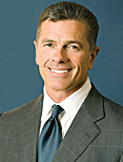
- Roger Woodworth is Vice President and Chief Strategy Officer at WCTA Gold Member Avista, the innovative Spokane-based utility founded in 1889 that now serves natural gas and electricity to customers in communities of Washington, Idaho, and Oregon. In addition to energy services, Avista has pioneered several clean energy enterprises in the fields of automated metering (Itron), modular fuel cells (ReliOn), and energy management for multi-site organizations (Ecova). As CSO, Roger works to identify new entrepreneurial growth opportunities for the company including innovative services, emerging technologies and other ventures that align with Avista’s core energy business. He is active in various professional and civic organizations including service as: chair of the President’s Advisory Council for WSU-Spokane; vice chair of the Innovate Washington board; and gubernatorial appointee as chair of the State of Washington Economic Development Commission. Roger is also a participant in the American Academy of Arts and Sciences forum on social sciences in energy policy and the Rocky Mountain Institute’s “Electricity Lab” initiative. Roger earned his Bachelor of Science degree in wildlife ecology from Washington State University and is a graduate of Columbia University’s Senior Executive Program.
- Susan Preston is General Partner for the CalCEF Clean Energy Angel Fund. The Angel Fund is focused on seed/start-up stage investments in clean energy technology. Susan is a world-recognized expert in angel financing and angel organization and spent most of her career in senior management positions in public and private companies, from general counsel to CEO. Susan is the author of many books on angel financing and operation of angel investment groups, for which she has received numerous accolades. She has been and continues to be a national and international consultant and speaker on economic development, angel, and venture financing for numerous countries and NGOs including the EU, OECD, Saudi Arabia, Australia, Industry Canada, and EBAN. She is the architect of the Access to Capital for Entrepreneurs Act, a bi-partisan federal income tax credit bill for private equity investing, which was introduced in the House and Senate in 2006 and 2007, and has been re-introduced in the current Congressional session. Ms. Preston received her JD, cum laude, from Seattle University School of Law and her BS, magna cum laude, Phi Beta Kappa, in Microbiology and Public Health from Washington State University.
- David Chen is the Founder of Equilibrium Capital Group, an investment firm building a portfolio of asset management companies in key sustainability sectors. Previously, Mr. Chen was general partner at OVP Venture Partners. Mr. Chen served on the board of HNC Software when it was merged with FICO, founded GeoTrust (acquired by VeriSign in 2006), and The Ascent Group; was Vice President Marketing at Mentor Graphics; an associate at McKinsey & Company; and was an early team member in 1978 at Solectron. Currently Mr. Chen serves as: Board Member of the Federal Reserve Bank of San Francisco’s Portland Branch, Advisory Board Member of the Oregon Investment Fund (OIF), Advisory Board of the X Prize for Energy & Environment, Board member of the National Collegiate Inventors & Innovators Alliance (NCIIA), Board member of The Freshwater Trust, Board member of B Corp, Faculty at the Kellogg School of Management at Northwestern University, Governor-Appointed Chairman (2005-2011) of the Oregon Innovation Council, and was Chairman (2003-2009) of the Oregon Nanoscience and Microtechnologies Institute (ONAMI). Mr. Chen is also a founder of Patton Valley Vineyards. Mr. Chen has a B.A. in biology, from the University of California, Berkeley, and a M.M. from the Kellogg School of Management at Northwestern University.
- Bryan Garcia is President of the Clean Energy Finance and Investment Authority in Connecticut. Bryan was named president of CEFIA in 2011. As the nation’s first state-level clean energy finance authority – or “green bank” – Bryan oversees efforts to attract and deploy capital to finance the clean energy goals for Connecticut. Prior to rejoining CEFIA in 2011, Bryan was program director for the Yale Center for Business and the Environment. At Yale, Bryan led efforts to develop a leading global program responsible for preparing environmental leaders for business and society. Previously he was director of energy market initiatives at CEFIA, where he created the Connecticut Clean Energy Communities Program and served as the climate change coordinator for the Governor’s Steering Committee on Climate Change.
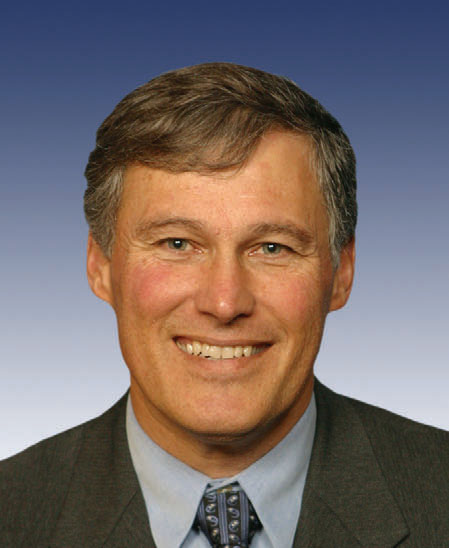
Jay Inslee is the 23rd Governor of Washington. He served in the U.S. House of Representatives from 1993-95 and from 1999-2012. Inslee was born in Seattle and graduated from Ingraham High School, the University of Washington, and Willamette College of Law. He practiced law for ten years in Selah. In 1992, was elected to the U.S. Congress in the district anchored by Yakima and the Tri-Cities. In Congress, Inslee passed the Yakima River Enhancement Act, a bill long held up in Congress by brokering a breakthrough with irrigators and wildlife advocates. He also helped to open Japanese markets to American apples, and fund and oversee the nation’s biggest nuclear waste site at the Hanford Nuclear Reservation. He lost his bid for re-election in 1994, attributing his defeat to his vote for the Federal Assault Weapons Ban. He moved to Bainbridge Island and resumed the practice of law. President Clinton appointed him regional director for the U.S. Department of Health and Human Services. He ran again for Congress in 1998 in the 1st congressional district. He was returned to the United States House of Representatives with over 60% of the vote in the next three elections. Inslee was awarded a “Friend of the National Parks” award by the National Parks Conservation Association (NPCA) in 2001 for his support of legislation protecting the integrity and quality of the National Park System. In 2002, Inslee was the first public figure to propose an Apollo-like energy program. Inslee co-authored Apollo’s Fire, in which he argues that through improved policies the U.S. can wean itself off of its dependence on foreign oil and fossil fuel, create millions of green-collar worker jobs, and stop global warming. A significant portion of the Governor’s inaugural address was devoted to climate change and the state’s moral imperative and economic opportunity in responding to it. Inslee said the state is well-suited to be a leader with its “particular brand of genius and ingenuity.” “Washington can’t solve this global problem alone, but we must embrace our role as first responders as our children’s health is in clear and immediate danger,” he argued. “We must also embrace our role as entrepreneurs and pioneers, ensuring that economic solutions to climate change begin here.” Inslee counts “clean energy technology” alongside aerospace, IT, life sciences, military, agriculture, and maritime trades as industry clusters that drive Washington’s economy now and will in the future.
Governor Inslee spoke about the importance of clean energy and how it is driving economic development, particularly in his state of Washington. However, he also stated that the U.S. military is making significant progress in rolling out clean energy. For example, he commended the Navy for its efforts to incorporate biofuels into their ships and planes.
- To listen to Gov. Inslee’s entire speech, click here.
Special thanks to our sponsors:
- Premier: APCO Worldwide
- Gold: Boeing
- Gold: Cascadia Capital
- Gold: Stoel Rives
- Silver: Perkins Coie
- Silver: Snohomish County PUD
- Silver: UniEnergy Technologies
- Bronze: Merrill Lunch
- Bronze: Puget Sound Energy
- Student Scholarship: Twelves Unlimited
- Lanyard: AlphaGraphics
- Media Partner: Xconomy
Thanks to our organizing committee:
- Chair: Chris Ajemian, Chris Ajemian Consulting
- Maggie Brown, APCO Worldwide
- Daniel Malarkey, WA State Department of Commerce
- Tim Stearns, WA State Department of Commerce
- Andrew Crowder, WA State Department of Commerce
- Avi Jacobson, Washington State Housing & Finance
- Chris Bast, Climate Solutions
- Michael Butler, Cascadia Capital
- Steve Marshall, CATES
- Tom Young, Office of Representative Dave Reichert
- Megan Owen, McKinstry
- Christine Love, Washington State University Energy Program
- Bruce Folsom, Avista Corporation
- Jan Greylorn, Delta S
- Ian Burkheimer, Transenergy Solutions